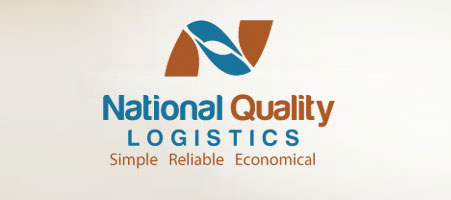Frequently Asked Freight Questions
When should I use a common carrier?
If your item weighs more than 150 lbs. then truck transportation is more economical than using parcel service. Common carriers transport your item on a truck, shared with other small shipment. By sharing space with others, it reduces transportation costs. However, if your shipment weighs more than 8,000 lbs., an entire truck may be required (called a Truckload). The standard procedure for common carriers is having the driver back up to a dock, having the truck loaded by the consignor (shipper), having the cargo driven to the receiving destination, and having the unloading performed by the consignee (receiver). Any service that is outside of the “standard procedure” may result additional charges.
Are transit times guaranteed?
The only time transit times are guaranteed are if they are noted as such on the carrier options list returned in your quote. Typically, most all other transit times are reliable, however are not guaranteed. The day of pickup is not included in the transit time.
What happens if my shipment isn’t ready when the driver comes?
Usually, the driver does not wait. The driver will be dispatched for the following day, which delays your service. You will be assessed a fee if the carrier charges NQL for the duplicated pickup.
Can I estimate the weight of my shipment?
If the wrong weight or freight class is used and the shipment assessed a reweigh or reclassification by the carrier, then you will incur additional costs. Reweighing can also result in a delayed delivery.
What is the claims process?
Claims can be handled directly between the shipper, consignee and the carrier or NQL can file on behalf of the claimant. You have within 90 days of delivery to file a claim with the carrier. The claimant should only file for loss or damage on the product which was shipped. ALWAYS be as concise as possible in noting specific damage on the delivery receipt. Our account representatives will assist you on filing a claim and can provide you with the proper forms.
Do I call the carrier after scheduling with NQL?
Please do not call the freight carrier or terminal – this will create a duplicate pickup. When you schedule with NQL, we handle the contact with the carrier electronically and/or via other means.
What should I do with the Bill of Lading?
A copy of the Bill of Lading should be given to all parties (buyer, seller and carrier). It is necessary that the BOL is given to the truck driver when he makes the pickup. Be sure to retain a copy for your records.
How should I package my shipments?
You should package, crate, or stack on pallets securely to prevent damage. Use banding, shrink-wrap, stretch-wrap, or breakaway adhesive to effectively secure cartons to the pallet. A carrier can void any liability for damage due to improper packaging. Be sure to stack cartons squarely on a skid, leaving no overhang. Make sure the top surface is flat. Do not forget to place labels on every piece or package.
Can I schedule a shipment and have it picked up on the same day?
Yes, but it won’t be guaranteed, due to our carriers’ capacity. Please allow a 2-3 hour window before closing your docks so that NQL can get a driver dispatched to your location within that same day. Also note that carriers usually make their pickups in the afternoon and deliveries in the mornings.
What is a NMFC number?
An NMFC number is a classification number assigned to a type of product, which is determined quarterly by the National Motor Freight Association. This classification number specifically identifies each type of product that can be shipped by a LTL carrier. An NMFC number, accurately identifying each product you ship, should always be on the Bill of Lading in order to avoid a reclassification. You can contact NQL at 866-272-0102 with information and help to determine the NMFC number for your products.
What if my items are fragile?
We recommend you use Blanket Wrap services (aka Van Line services) when shipping personal or fragile items. Freight carriers are liable for only 10 cents per lb. of your freight. Instead it is best to use a Van line that specializes in moving personal items and they can offer additional insurance covering the items’ full values. Common carriers are NOT recommended for shipping your expensive, fragile items.
Do fees apply for residential service?
A business location, which is defined by the carrier, is one that opens and closes each day to the general public at set times. A business may be classified as a residence service if it is located in a residential zone, even if it opens and closes at set times. Schools, colleges, and churches located in residential zones could also incur residential fees. Also, if the driver is required to go inside (beyond the front door or loading dock) to make a pickup or to deliver a load, additional fees may be apply. When there is no loading dock at shipping or receiving address, manual loading or unloading will be necessary. To use lift-gate service, which is a mechanical platform on the back of the truck that lifts and lowers shipments from the ground to the truck, additional fees will be assessed.
Are your rates guaranteed?
NQL has many established relationships with both regional and national carriers, due to our ability to do a large volume of shipments with them. To ensure that you obtain the NQL rate that was quoted, it is crucial that you provide the driver with a copy of the BOL provides by NQL or partner DLS Logistics. This tells the carrier how to bill the shipment and applies discounts that NQL and/or DLS has negotiated with them.
What happens if I receive a bill directly from a carrier?
You should call our customer service department at 866-272-0102 or your local sales representative. You should also fax a copy of the bill you had received from the carrier. Our staff will handle it and have the charges adjusted and properly credited. Typically, this situation occurs when the NQL / DLS BOL is not used. To prevent this matter in the future, please make sure that the shipper provides the driver a copy of the NQL / DLS BOL for each shipment.
What is dimensional weight?
Dimensional weight is basically when the weight of a package is significantly less than the actual size of the package. An example would be a box containing inflated balloons. Dimensional weight is a standardized formula used in the freight industry. Transportation charges can be based on either the gross weight of the shipment or the dimensional weight; whichever one is greater. It is important to call NQL for any shipment taking up more 8 standard 40×48 skid spots or the shipment has a weight of 10,000 lbs or more. An NQL representative with obtain and recommend the best and most economical shipping rate and option.
When do dimensional weight charges apply?
The carrier will charge by the dimensional weight when the actual weight of a package is less than the calculated dimensional weight.

